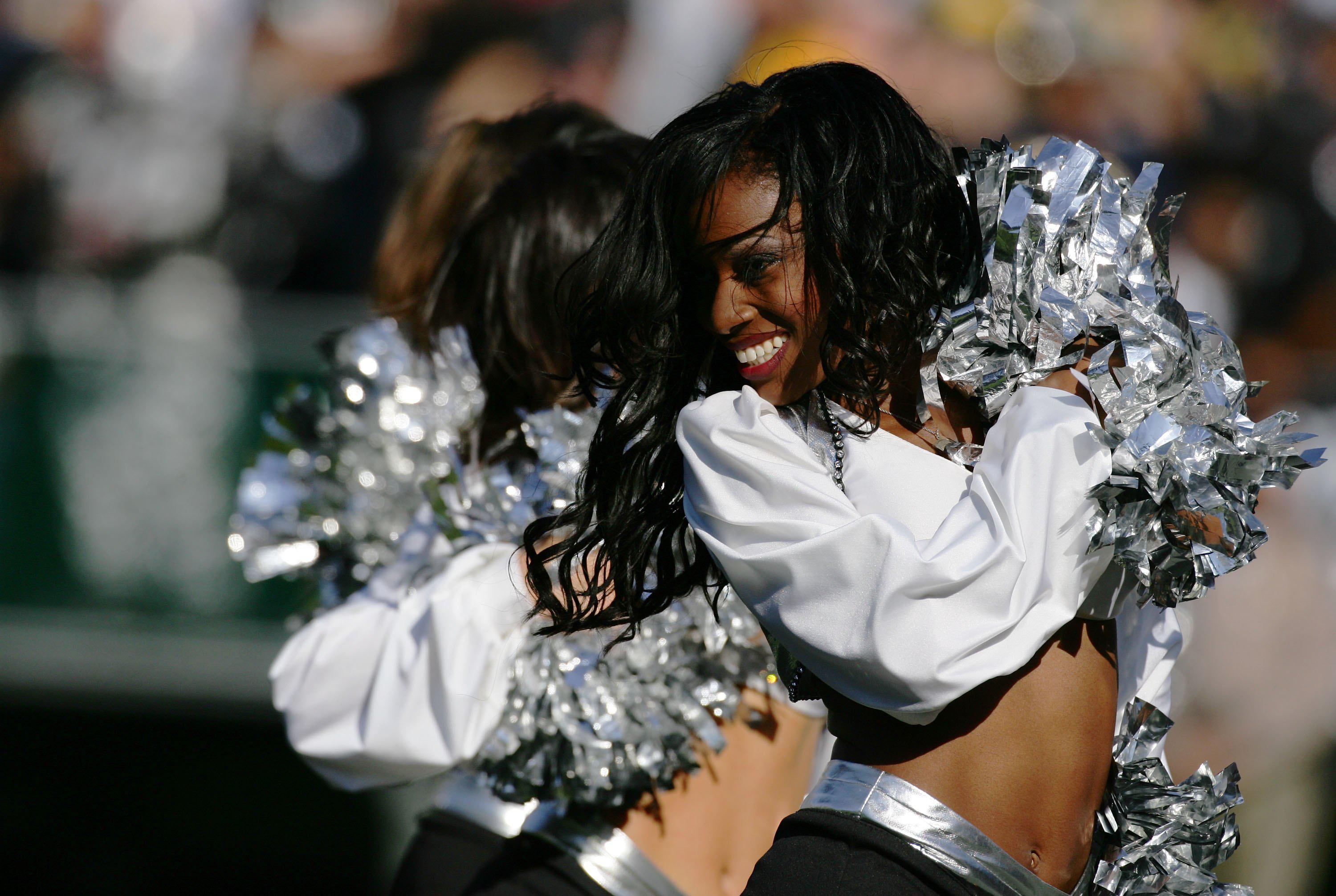The two Raiderette cheerleaders who revolted against the team this year—suing the Oakland Raiders for paying them less than minimum wage, withholding paychecks until the end of the season, and never reimbursing them for business expenses—have declared victory. Lacy T. and Sarah G., who filed a class-action suit on behalf of their fellow Raiderettes this spring, have reached a settlement with the NFL franchise. The team will pay out a total of $1.25 million to 90 women who cheered between 2010 and 2013. That translates to an average $6,000 payout per cheerleader per season for the first three seasons covered by the suit, and an average of $2,500 each for the final season. (Right before Lacy’s lawsuit hit, the Raiders unexpectedly padded the 2013 cheerleaders’ checks with additional cash). According to Sharon Vinick, lawyer for the Raiderettes, future Raider cheerleaders will be paid minimum wage for all hours worked, receive checks every two weeks, and be reimbursed for business expenses they incur in the course of the job.
“We are excited that the Raiders have decided to pay their current cheerleaders in accordance with the law,” Sarah G. said in a statement through her attorney. “This was our goal and I am pleased to say I was a part of an organization whose management decided to make these changes. Now we can just go back to dancing, being respected and taking down the Niners when they try to step onto our field!”
Is the settlement fair? $1.25 million sure sounds like a big number, and for many current and former Raiderettes, the split ain’t bad: The women who cheered for all four seasons covered by the suit could stand to receive checks for more than $20,000. (As for the naysaying cheerleaders who complained that Lacy T. and Sarah G. were making them look bad by speaking up: If they fail to cash their checks, the money will be donated to Girls Inc., an Alameda County nonprofit that provides enrichment activities for local girls.)
It’s depressing to remember, though, that the payout is not a surprise bonus: It represents money the Raiders stole from these women. Lacy T. in particular had to work long, unpaid hours to recoup the money she had rightly earned. (She cheered only last year, putting her in the $2,500 range.) Lacy knew that working to change the system would not be a lucrative endeavor: “I never dreamed that my decision to find a lawyer and file a lawsuit would lead to the kind of sweeping changes we are now seeing for the women of the NFL,” she said in the statement. “But as a mom, it makes me proud to know I’ve stood up for myself, other women, and my daughter.”
Cheerleaders for the Bengals, Bills, Jets, and Buccaneers—all of whom filed similar suits against their teams after Lacy took on the Raiders—have reason to be encouraged by the Raiders’ payout and policy shifts. Still, I wish the changes here were a little more sweeping. The Raiders have begrudgingly agreed to pay future cheerleaders—women they march out as the face of their organization, and hold to extreme standards of conduct—the minimum wage. It’s the least they can possibly do. That is indeed cause for celebration on the NFL sidelines. But it doesn’t exactly communicate respect.
